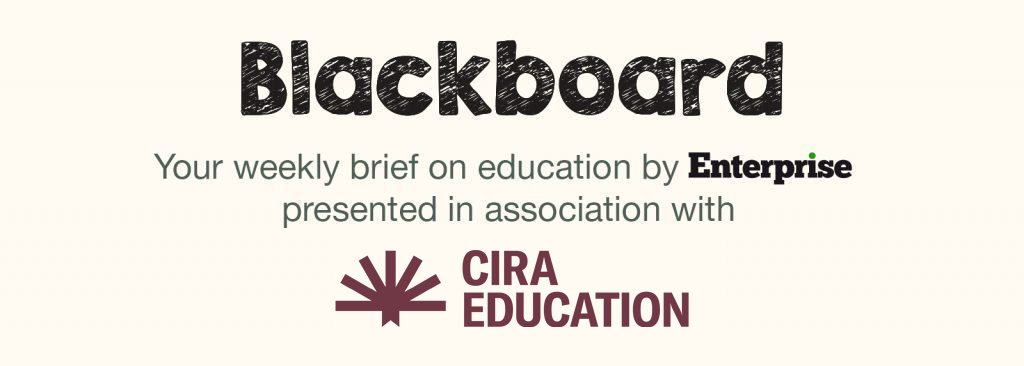
How ready are Egypt’s schools for edtech? Part 2 of 2.

Edtech could be just the fix for some of the more significant issues in the education sector: Education technology (edtech) is well-positioned to address several challenges in Egypt’s education space, including issues of access and infrastructure, as well as a lack of diverse content and quality teaching. Although edtech players that are either looking to enter Egypt or are already here face hurdles in getting their products to market or expanding their footprint — including cost barriers and skill and training gaps — many still see massive potential in the Egyptian market. For edtech to be successfully applied in Egyptian schools, providers need to ensure adequate training for teaching staff and provide solutions that are tailored for the regional and national context, according to government officials and nearly a dozen UK-based edtech companies speaking at a showcase hosted by the British embassy last month.
REFRESHER- In part one of this Blackboard two-parter, we looked at the lay of the land of the current edtech adoption in Egypt and why British companies are interested.
The big initial hurdle: Tight budgets amid rising costs: For educational resource suppliers, like CES Holdings, Egypt presents a market with huge growth potential — but the challenge lies in getting their products to us, MENA head Ceri Henderson told Enterprise. “Budgets are tight everywhere,” Henderson said. Schools are facing cost pressures from restrictions on raising tuition fees, while also having to answer to parents, who want to know that schools are spending on the best materials, from books to pens, for their children. Providers like CES are attempting to provide well-priced products, but between a weakening EGP and certain levies like import taxes, these providers find themselves faced with mounting costs, Henderson added.
Once these products are in the market, there’s also the issue of skills and capacity training: Some edtech players, including the Tes Institute and Innovera — in collaboration with global education company Promethean — have already been active in offering teacher training programs to schools in Egypt. Innovera and Promethean have together trained over 135k teachers in the country to date, Promethean’s head of education strategy John Collick told Enterprise. Most institutions looking to adopt edtech have their tech partner conduct “a workshop or two,” Innovera said, but comprehensive training that teaches day-to-day integration of edtech in teaching — both to educators and school leadership — is the only way to adopt a sustainable approach. The Tes Institute has also been offering teaching training programs to schools in Egypt for more than four years, with a focus on training or upskilling local educators as opposed to bringing expat teachers to the market, MENA head of regional development Ryan Jones told Enterprise.
But again, affordability is a roadblock: Tes offers six courses on international teaching practices, including the International Postgraduate Certificate in Education, a fully online master’s level course for individuals looking to teach internationally. Courses start from a costly GBP 3k (over EGP 111k) — and these are some of the cheapest in the market, Jones said. To attract teachers, Tes is looking to provide workarounds to help tamp down the costs. If a school pays for the course for one of its teachers, value-added taxes are waived, for example. The company is also looking at incorporating an installment method for payments, and currently several of the courses can be studied online and alongside a full-time job.
A key point in the approach to edtech is using it as a support tool, rather than a replacement for human teachers: “Tech needs to support teachers not take their place,” Education Minister Reda Hegazy said at the showcase. By adopting edtech that supports pedagogical methods, schools can focus on providing student centric learning. The government has been pushing education reform since former minister Tarek Shawki’s 2018 launch of Education 2.0 — a broad overhaul of the K-12 education system — and is looking to the private sector to provide integrated tools that bolster education quality and content. Allowing teachers to focus on innovative learning that engages students is key to the government’s education reform strategy, Deputy Education Minister for Information Technology Ahmed Daher said during a roundtable at the showcase.
Edtech players can help create transformation strategies that streamline activity in the classroom: Schools should seek a “long-term edtech partner” to help develop an edtech strategy that relies more on “transformation rather than trends,” Innovera’s Middle East program manager Ashraf Magd told Enterprise. Some companies, such as advanced machine learning platform Century Tech, can help streamline teachers’ work by relaying data on their students’ learning needs and building personalized paths that parents can have access to. These types of solutions reduce the burden on teachers and avail time and resources to allow them to focus on developing relationships with students and focusing content on their needs.
Importantly, these solutions need to take a region-specific approach: Most edtech solutions are “built with global perspectives,” ignoring the specific needs of a developing country — like poor internet connectivity inside classrooms, or tech infrastructure within schools, Magd said. When edtech partners enter the Egyptian market they need to to understand the needs and limitations facing schools, Magd told us. International companies need to develop long-standing relationships with local school leaders, which will help to shape the solutions they provide, Deputy Director General of the British Educational Suppliers Association Julia Garvey agreed.
Communication is key to understanding: The showcase served as the first step, to allow the British schools to identify edtech advocates within Egyptian schools that will champion the incorporation of edtech and be a part of the onboarding process, Garvey said. Edtech partners must maintain productive relationships for schools to be convinced in the value of an edtech solution and remain in a continued dialogue with their edtech partners.
Your top education stories for the week:
- The Education Ministry will launch an in-school tutoring scheme across all governorates at the start of the second semester of the academic year as it moves to crack down on the private tutoring industry.
- MP calls for action on soaring private university fees: Rep. Ayman Mehasseb has called on the Education Ministry to help parents shoulder the burden of rising tuition fees at private universities amid high inflation. (Al Mal)
Enterprise is a daily publication of Enterprise Ventures LLC, an Egyptian limited liability company (commercial register 83594), and a subsidiary of Inktank Communications. Summaries are intended for guidance only and are provided on an as-is basis; kindly refer to the source article in its original language prior to undertaking any action. Neither Enterprise Ventures nor its staff assume any responsibility or liability for the accuracy of the information contained in this publication, whether in the form of summaries or analysis. © 2022 Enterprise Ventures LLC.
Enterprise is available without charge thanks to the generous support of HSBC Egypt (tax ID: 204-901-715), the leading corporate and retail lender in Egypt; EFG Hermes (tax ID: 200-178-385), the leading financial services corporation in frontier emerging markets; SODIC (tax ID: 212-168-002), a leading Egyptian real estate developer; SomaBay (tax ID: 204-903-300), our Red Sea holiday partner; Infinity (tax ID: 474-939-359), the ultimate way to power cities, industries, and homes directly from nature right here in Egypt; CIRA (tax ID: 200-069-608), the leading providers of K-12 and higher level education in Egypt; Orascom Construction (tax ID: 229-988-806), the leading construction and engineering company building infrastructure in Egypt and abroad; Moharram & Partners (tax ID: 616-112-459), the leading public policy and government affairs partner; Palm Hills Developments (tax ID: 432-737-014), a leading developer of commercial and residential properties; Mashreq (tax ID: 204-898-862), the MENA region’s leading homegrown personal and digital bank; Industrial Development Group (IDG) (tax ID:266-965-253), the leading builder of industrial parks in Egypt; Hassan Allam Properties (tax ID: 553-096-567), one of Egypt’s most prominent and leading builders; and Saleh, Barsoum & Abdel Aziz (tax ID: 220-002-827), the leading audit, tax and accounting firm in Egypt.